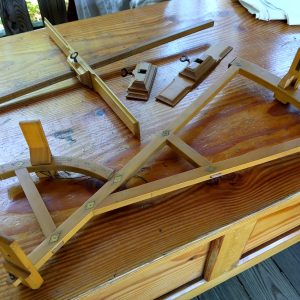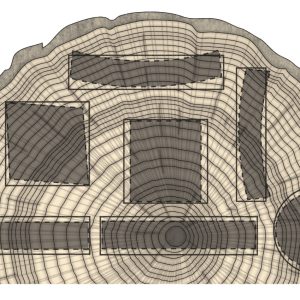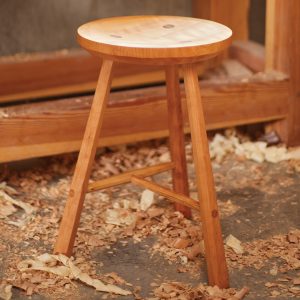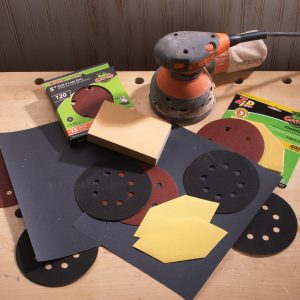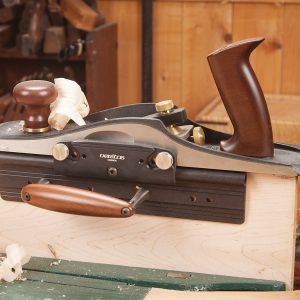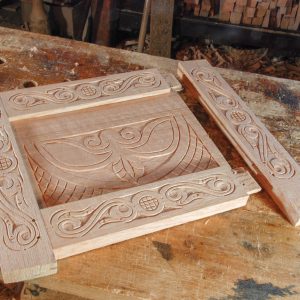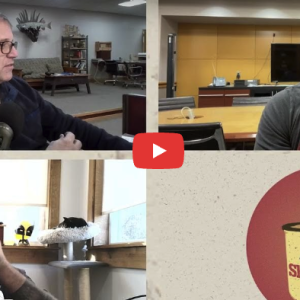We may receive a commission when you use our affiliate links. However, this does not impact our recommendations.
Learning woodworking isn’t just about “how to” do something. A good example of this comes from my days as an apprentice in a commercial cabinet shop. I entered the experience with a misguided, romantic notion of working beside an experienced craftsman and being tutored in the fine points of cabinetmaking. I figured I would be coached and guided as my skills developed. That type of experience may exist in old books or in woodworking schools, but the real world is quite a bit different. The old guys who taught me had mostly apprenticed in Europe and were incredibly skilled. But they didn’t fool around and they didn’t tolerate any one else fooling around. The focus was on getting work out the door. The standards for quality were very high as was the expectation that you didn’t waste a step.
 One of my first tasks was to make 5,000 3/8″ oak plugs. That’s a lot of plugs, and that was just the first batch. When asked if I knew how to do it, I confidently answered yes. In the boat yard I had worked in before the cabinet shop I made plugs on a regular basis. Most of those were for repairs and the standard procedure was to grab a scrap of wood out of the trash and head to the drill press. There I set the depth of cut and randomly placed plugs. When I had however many the scrap would hold, I would head to where the work was and pop out a plug with a chisel when needed. I figured all I had to do was repeat my process 100 or 200 times.
One of my first tasks was to make 5,000 3/8″ oak plugs. That’s a lot of plugs, and that was just the first batch. When asked if I knew how to do it, I confidently answered yes. In the boat yard I had worked in before the cabinet shop I made plugs on a regular basis. Most of those were for repairs and the standard procedure was to grab a scrap of wood out of the trash and head to the drill press. There I set the depth of cut and randomly placed plugs. When I had however many the scrap would hold, I would head to where the work was and pop out a plug with a chisel when needed. I figured all I had to do was repeat my process 100 or 200 times.
 It wasn’t long until I was shown the error of my ways. Lessons weren’t delivered in gentle tones, they were delivered at a high volume. I knew an important lesson was coming when I heard “LANG! WHAT THE #*($@^ DO YOU THINK YOU’RE DOING?!” Making a few acceptable plugs is one thing; making a profit on 5,000 of them is another. And so I was yelled at for not ripping the scraps into strips just a bit wider than the plug cutter. Then I was yelled at for not setting up a fence at the drill press. Then I was yelled at for not knowing that a fence at the drill press should have a step on the bottom edge so chips don’t build up. Then I was yelled at for not raising the table of the drill press so I wouldn’t need to move my arm so far with every stroke. Then I was yelled at for popping the plugs off the strip with a chisel – was I some kind of idiot who didn’t know the table saw could cut wood? The final shouting told me to lower the blade a little so that the plugs stayed attached to the strip but could easily be popped off and then I was quietly asked what made me think I would ever be a cabinetmaker.
It wasn’t long until I was shown the error of my ways. Lessons weren’t delivered in gentle tones, they were delivered at a high volume. I knew an important lesson was coming when I heard “LANG! WHAT THE #*($@^ DO YOU THINK YOU’RE DOING?!” Making a few acceptable plugs is one thing; making a profit on 5,000 of them is another. And so I was yelled at for not ripping the scraps into strips just a bit wider than the plug cutter. Then I was yelled at for not setting up a fence at the drill press. Then I was yelled at for not knowing that a fence at the drill press should have a step on the bottom edge so chips don’t build up. Then I was yelled at for not raising the table of the drill press so I wouldn’t need to move my arm so far with every stroke. Then I was yelled at for popping the plugs off the strip with a chisel – was I some kind of idiot who didn’t know the table saw could cut wood? The final shouting told me to lower the blade a little so that the plugs stayed attached to the strip but could easily be popped off and then I was quietly asked what made me think I would ever be a cabinetmaker.
 This was a typical day when I was an apprentice, and this is typical training in European shops where brow-beating and humiliation are considered effective motivational tools. I hated it at the time, but later on, when I was trying to make a living in my own shop, I realized how valuable this experience was. The lessons in the above paragraph aren’t specific to the task of making plugs, they apply to everything in the shop. What I really learned was that every step of any process is an opportunity to do things more efficiently, to make the work less tedious and the end product better. It’s about working smarter instead of working harder and eventually I learned to look for the easiest way to do things. Woodworking is a lot of fun when you aren’t doing things the hard way. Making it easy and fun is a worthy goal, whether you’re making one of something as a hobby or a boatload of things to pay the bills.
This was a typical day when I was an apprentice, and this is typical training in European shops where brow-beating and humiliation are considered effective motivational tools. I hated it at the time, but later on, when I was trying to make a living in my own shop, I realized how valuable this experience was. The lessons in the above paragraph aren’t specific to the task of making plugs, they apply to everything in the shop. What I really learned was that every step of any process is an opportunity to do things more efficiently, to make the work less tedious and the end product better. It’s about working smarter instead of working harder and eventually I learned to look for the easiest way to do things. Woodworking is a lot of fun when you aren’t doing things the hard way. Making it easy and fun is a worthy goal, whether you’re making one of something as a hobby or a boatload of things to pay the bills.
Frank Klausz reminds me of the guys I worked with back in the day. He apprenticed in his native Hungary and ran his own shop for years. In his new video “Joinery Master Class” he’ll teach you what you need to know, without yelling at you.
Here are some supplies and tools we find essential in our everyday work around the shop. We may receive a commission from sales referred by our links; however, we have carefully selected these products for their usefulness and quality.






